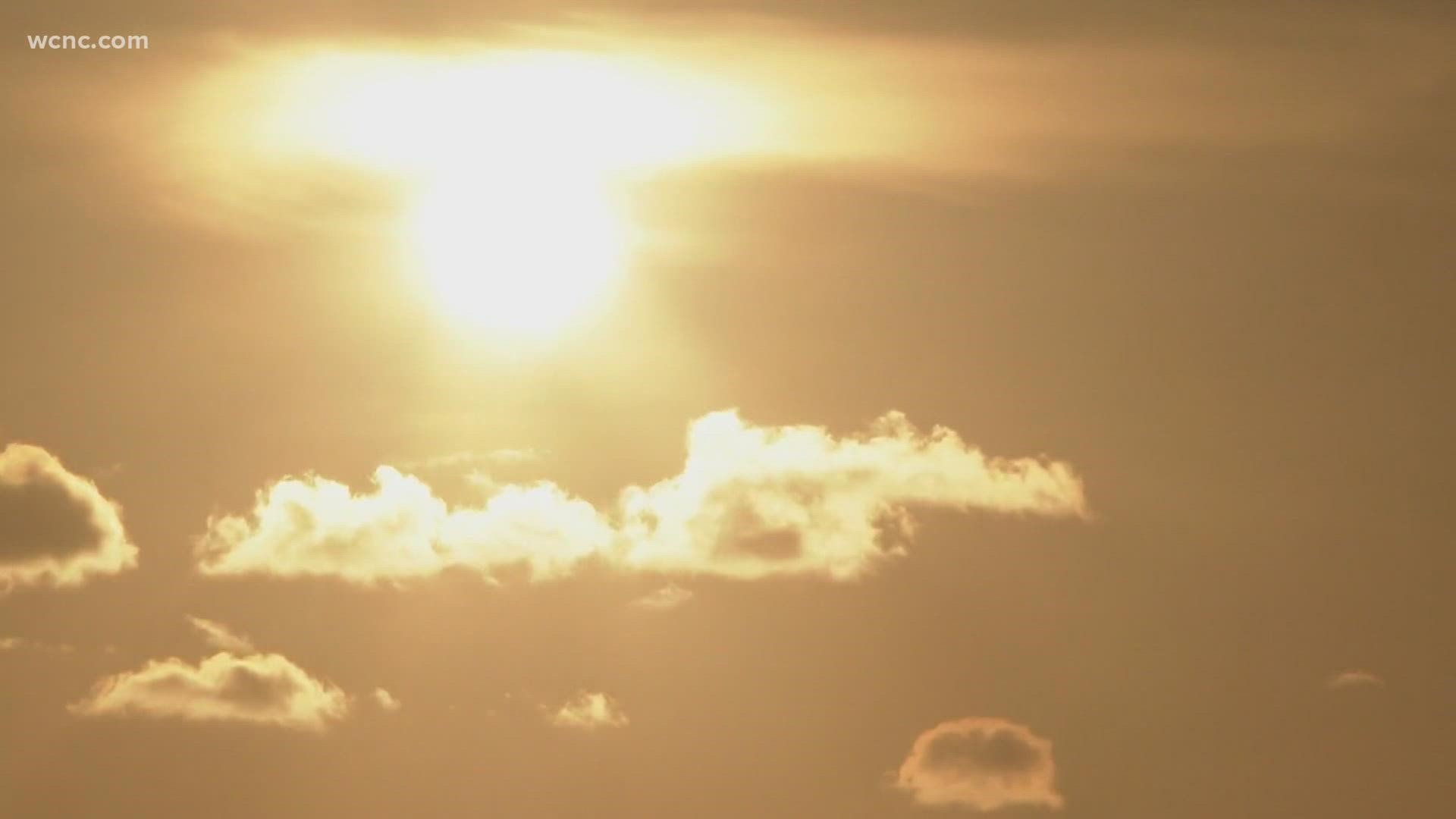CHARLOTTE, N.C. — In the age of social media and false information being easily spread online, our meteorologists often see one topic that seems to have a multitude of misconceptions. This topic is climate change.
First, let’s point out that the terms “climate change” and “global warming” are often used interchangeably, but that is not correct. The two have distinct meanings. In this story, we are focusing specifically on climate change.
According to NASA, climate change is “a long-term change in the average weather patterns that have come to define Earth’s local, regional and global climates. These changes have a broad range of observed effects that are synonymous with the term.”
Think about that definition. Climate change is long-term. Climate is based on an average. You cannot attest every weather pattern to climate change. For example, when Charlotte experiences one cold morning, that doesn’t mean climate change isn’t occurring. And it’s the same if we have record heat.
But let’s say we experienced 20 record highs one year and no record lows. Those patterns can hint at a change in what our climate is experiencing.
The Earth as a whole has experienced its warmest years on record recently. 2021 tied 2018 as the 6th warmest year on record, and 2020 and 2016 are tied for the warmest years on record globally. That doesn’t mean the Earth doesn’t experience extreme cold (or extreme heat) – it means that the averages are getting higher.
The average temperatures are increasing. The long-term trend is up.
There is substantial evidence of climate change that can impact us, especially in the Carolinas. Some of the most talked-about evidence is warming temperatures, sea-level rise, warming oceans, shrinking ice sheets, glacial retreat, decreased snow cover, declining Arctic sea ice, ocean acidification, and extreme events.
Some examples of how these can impact you:
With more heat and humidity being pumped into the Carolinas, locally we can expect more hot nights and more extreme heat, especially during the summer months. The humid, tropical air can also fuel flash flooding events.
And it’s not just here, the United States has witnessed increasing numbers of intense rainfall events. Flash flooding is one of the biggest concerns in Charlotte. Cities often have infrastructure, such as buildings and concrete, that doesn’t support rainfall being absorbed into the ground. Instead, it has nowhere to go causing extreme runoff and rapid flash flooding events.
Tourism is huge in the Carolinas, especially along the beautiful beaches and islands of our coast. However, the global sea level rose about 8 inches in the last century. However, over the last two decades, that number is nearly double of the last century and accelerating slightly every year.
And while sea level rise will impact coastal and low-lying areas, intense coastal storms and high tide flooding events – that already cause issues – will only get worse.
The melting of snowpacks helps drought-stricken areas every year. With decreased snow cover, areas that often don’t receive a lot of rainfall during the dry months have even less water available.
The Earth stores 90% of the extra energy in the ocean, according to NASA. Their numbers show ocean temperatures warming more than 0.6 degrees Fahrenheit (0.33 degrees Celsius) since 1969. This can not only impact global weather patterns, such as the jet stream and the El-Niño Southern Oscillation, but it can also alter smaller-scale events, such as hurricanes. For example, you can’t attest a single event (such as one hurricane) to climate change. But if the storms that do form last longer or are stronger due to a souped-up ocean due to warming, those trends can be linked directly to climate change.
The data is clear on this, too. In 2020, Charlotte received new climate data from the past 30 years. The previous averages were from 1981-2010 and now it’s 1991-2020. The average temperature went up by 1.4 degrees (from 59.9 to 61.3) while the average rainfall went up by almost 2 inches (41.63” to 43.57”).
By doing these stories, we hope to not only educate our viewers on what’s going on in our local community but around the globe too. We hope to answer your questions, talk about your concerns, and discuss solutions. Welcome to our first branch of Weather IQ – our new Climate IQ stories.
Contact Brittany Van Voorhees at bvanvoorhe@wcnc.com and follow her on Facebook, Twitter and Instagram.

